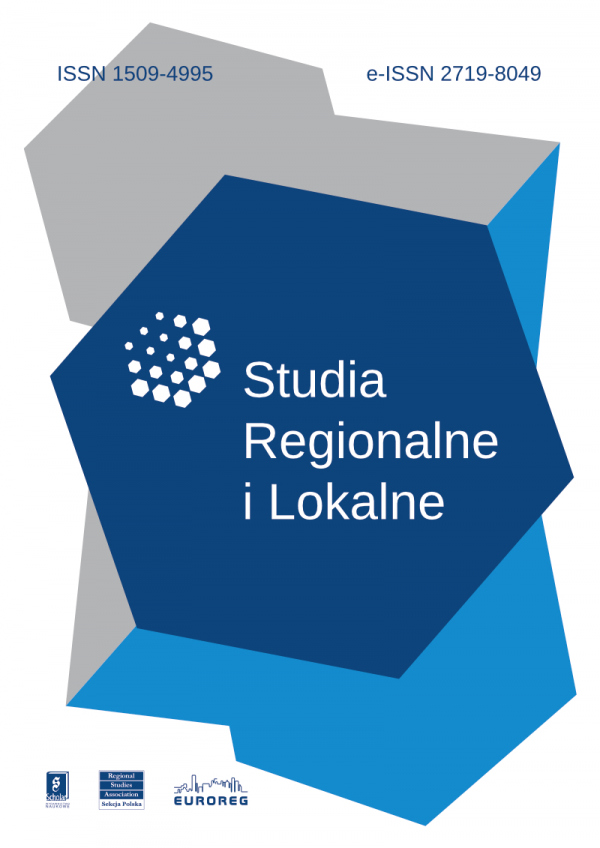Published in
2(84)2021

- Robert PykaBusiness Tourism as an Instrument for Changing the Image and Sustainable Metropolisation of Postindustrial Cities as Exemplified by the City of Katowice in Poland[more]
- Ewa Łaźniewska, Izabela Janicka, Tomasz GóreckiEcological Activity of Municipalities from the Cross-border Perspective. The Example of Municipalities at the Polish‑German Border[more]
- Piotr MaleszykEducational Migration of Secondary School-leavers. The Example of Lublin[more]
- Michał NiebylskiPartners without Partnership? Application of the Partnership Principle in the Process of Implementing Regional Operational Programmes in Poland in the 2014–2020 Financial Perspective[more]
- Maciej J. Nowak, Przemysław Śleszyński, Anna OstrowskaRulings of Administrative Courts Concerning Studies of Conditions and Directions of Spatial Development of Communes. Public Policy and Geographical Perspective[more]
- Małgorzata MadejAncillary Units and Their Role in Cities with District Rights – the Example of Wrocław[more]
- Bolesław DomańskiSocial Justice and Spatial Differentiation of Socio-economic Development of Poland – Some Reflections[more]
- Grzegorz GorzelakRegional Disparities – Political Preferences – Social Justice[more]
- Dominika Milczarek-AndrzejewskaKatarzyna Szmigiel-Rawska, Teorie współpracy terytorialnej. Municipium oeconomicus versus municipium reciprocans (recenzja)[more]


